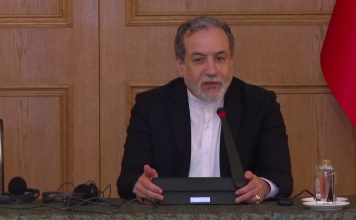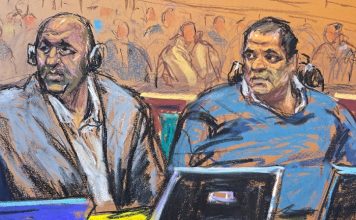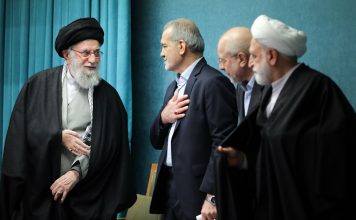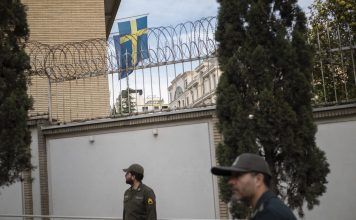By Parisa Hafezi
DUBAI, June 25 (Reuters) – Iran‘s indirect talks with the United States on reviving the 2015 nuclear pact will resume soon, the Iranian foreign minister said on Saturday amid a push by the European Union’s top diplomat to break a months-long impasse in the negotiations.
“We are prepared to resume talks in the coming days. What is important for Iran is to fully receive the economic benefits of the 2015 accord,” Foreign Minister Hossein Amirabdollahian said, adding that he had held a “long but positive meeting” with EU foreign policy chief Josep Borrell.
White House National Security Council spokesperson John Kirby said he could not speak on the status of the negotiations.
“But there’s nothing changed about our position that a nuclear deal is the best way to prevent Iran from achieving nuclear weapons status,” Kirby told reporters traveling aboard Air Force One. “We want to get them back into compliance.”
The pact appeared close to being revived in March when the EU – which is coordinating negotiations – invited foreign ministers representing the accord’s parties to Vienna to finalise an agreement after 11 months of indirect talks between Tehran and President Joe Biden’s administration.
But the talks have since been bogged down, chiefly over Tehran’s insistence that Washington remove the Islamic Revolutionary Guard Corps (IRGC), its elite security force, from the U.S. Foreign Terrorist Organization list.
“We are expected to resume talks in the coming days and break the impasse. It has been three months and we need to accelerate the work. I am very happy about the decision that has been made in Tehran and Washington,” Borrell told a televised news conference in Tehran.
Two officials, one Iranian and one European, told Reuters ahead of Borrell’s trip that “two issues including one on sanctions remained to be resolved”, comments that Iran‘s Foreign Ministry has neither confirmed nor denied.
“We agreed on resumption of negotiations between Iran and U.S. in the coming days, facilitated by my team, to solve the last outstanding issues,” Borrell said.
“And the coming days mean coming days. I mean, quickly, immediately.”
In 2018, then-U.S. President Donald Trump pulled out of the deal, under which Iran agreed to curbs on its nuclear programme in return for relief from economic sanctions.
The U.S. withdrawal and its reimposition of crippling sanctions prompted Iran to begin violating its core nuclear limits about a year later.
Western powers fear Iran is getting closer to being able to produce a nuclear bomb if it decided to, though Iran says its intentions are entirely peaceful.
Ali Shamkhani, secretary of Iran‘s Supreme National Security Council, which makes the decisions in the nuclear talks, told Borrell that Iran will further develop its nuclear programme until the West changes its “illegal behaviour”. Read full story
“Iran‘s retaliatory actions in the nuclear sector are merely legal and rational responses to U.S. unilateralism and European inaction and will continue as long as the West’s illegal practices are not changed,” Shamkhani said, without elaborating.
And despite the imminent resumption of talks, Borrell appeared to play down the possibility of a quick deal.
“I cannot predict … We are pushing for it. I appreciate the goodwill from the Iranian side. There is also goodwill from the American side,” Borrell said in a news conference on an EU website.
“Talks between Iran, the U.S. and the EU will not take place in Vienna because they will not be in the 4+1 format… they will probably take place somewhere closer to the Persian Gulf and more specifically in a Persian Gulf state,” Iranian media quoted Borrell as saying.
(Writing by Parisa Hafezi; Additional reporting by Andrea Shalal aboard Air Force One; Editing by Frank Jack Daniel and Daniel Wallis)







